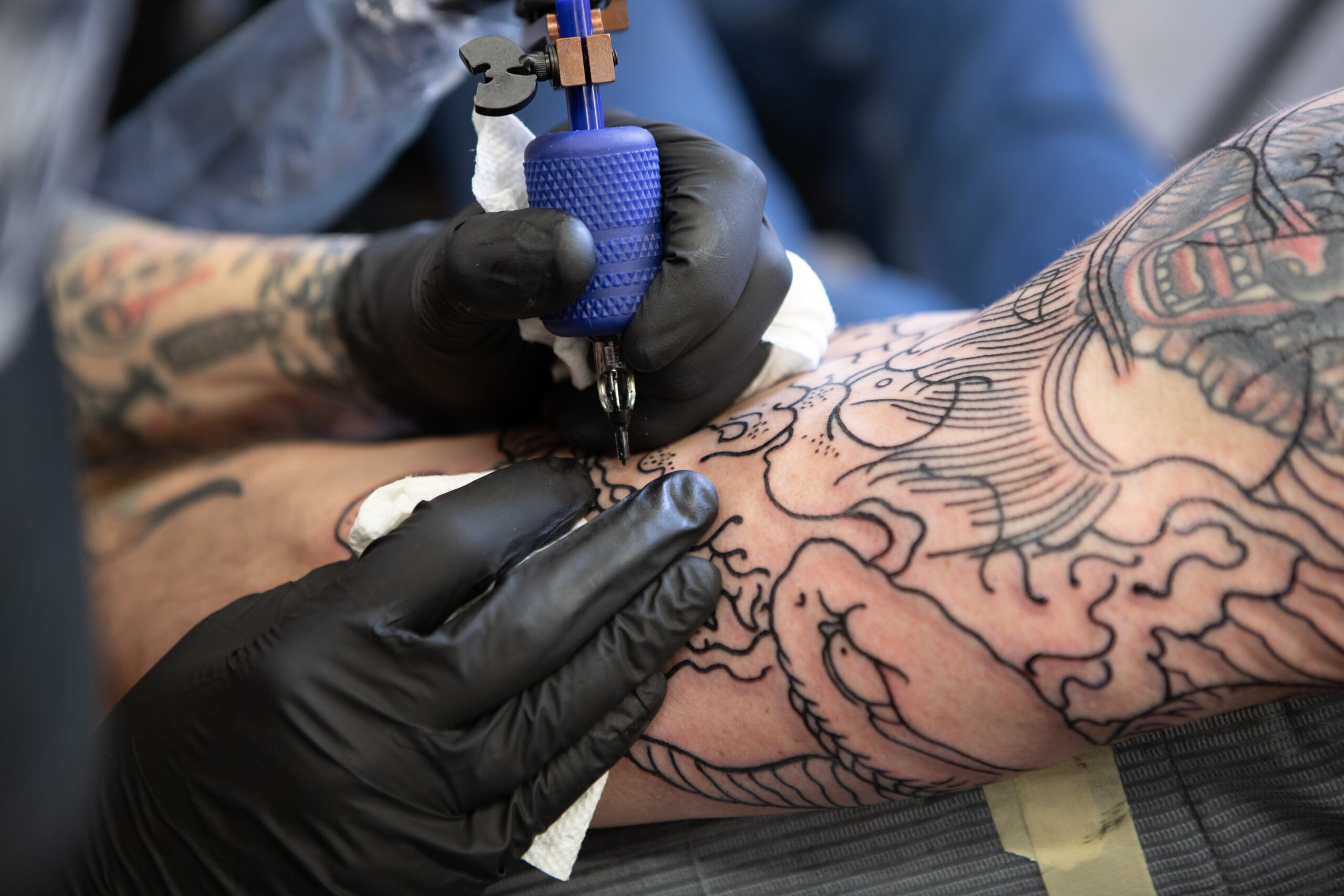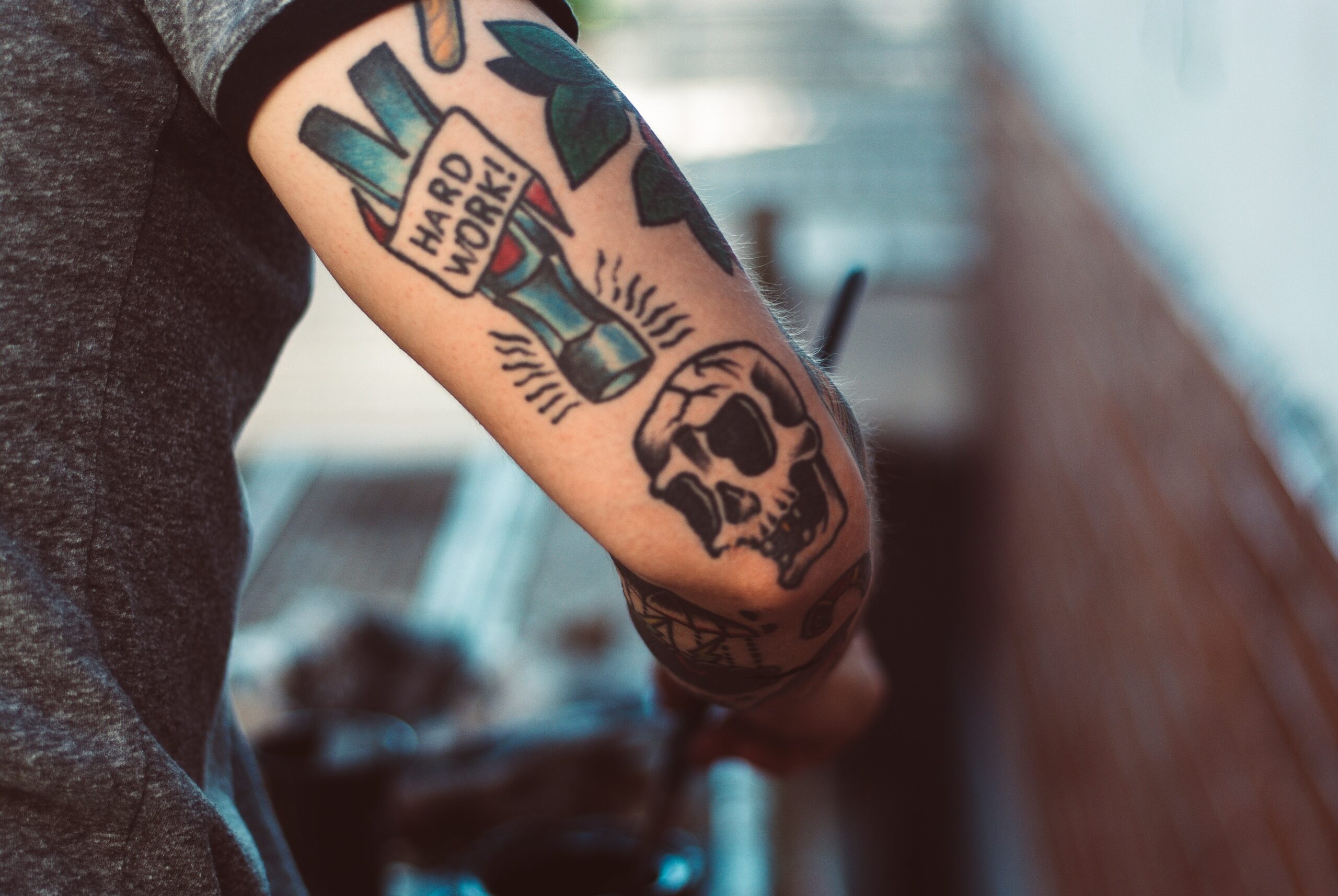Peeling is a common occurrence during the early stages of routine tattoo recovery as the body gets rid of dead skin cells.
You got a tattoo recently, carefully took the proper tattoo maintenance procedures, but now your tattoo is peeling. If you’re getting a tattoo for the first time, the various stages of the recovery process may have you anxiously exploring the internet for answers as to why your tattoo is peeling.
It’s common to see flakes while cleaning a tattoo. To promote the recovery process, it is essential that people stick to their aftercare regimen and then use skin-sensitive antibacterial soap and a suitable moisturizing lotion.
The topic of tattoo peeling and the healing process will be discussed in this post. We will also provide information on aftercare and when a person should consult a doctor.
What Is the Reason Behind My Tattoo Peeling?
The very last sight you want to see after getting new tattoos is the new art peeling off from your skin.
Peeling is usual in the initial stages of healing. Peeling is your body’s technique of getting rid of dry skin cells that were impacted while your skin recovers after a tattoo.
Severe peeling after having a tattoo, on the other hand, could signal something else entirely – particularly if you’re noticing signs of inflammation or infection.
After You’ve Gotten a Tattoo, What Happens?
Getting a tattoo is painful and time-consuming, but that’s only the beginning. Your tattooist has just made a wound in your skin that needs to heal before your tattoo can be seen.
It may take a couple of weeks for the wound to heal completely.
Needles enter the top – middle layers of the skin during the tattooing procedure. The epidermis and dermis are the skin’s two layers.
Exfoliation occurs when dead skin cells flake off so that new ones can be renewed while your skin cells recover.
A new tattoo wound is particularly sensitive to illness and infection without adequate aftercare methods.
When Does a Tattoo Start to Peel Off?

By the end of the first week, most tattoos had begun to peel. After you’ve had your tattoo done, you’ll need to bandage it.
Scabs that peel off on their own may appear in the second week during the healing process.
Following your session, you may observe that your tattoo ink appears “gloomy.” This is unrelated to the ink itself. Instead, it’s due to the buildup of dead skin cells on top of your tattoo.
Your colors should look fresh again after your skin has finished the usual peeling procedure.
Is It Possible for a Tattoo To Be Damaged by Peeling?
Extreme peeling, while typical and a natural part of the process of healing might harm a tattoo. But, if a person follows aftercare instructions and lets the skin peel away completely, the tattoo should be unaffected.
If a person does not take good care of their tattoo, or if they scratch or pick at it, the ink might lift and be removed. This could result in spotty regions and detract from the overall beauty of the tattoo.
Scratching or picking at the tattoo, which is an exposed wound, raises the likelihood of infection. This can damage the tattoo and cause health problems.
Symptoms of a Tattoo That Isn’t Healing Properly Include
While peeling is a natural part of recovery, there are symptoms that your new tattoo isn’t recovering properly.
Stay updated on the signs and symptoms listed below. If you notice any, speak with a doctor.
Rashes
Rashes on the skin may suggest an allergic response to the tattoo ink.
If you do have an inflammatory skin disorder, getting a tattoo can cause a flare-up, which usually appears as red areas on your skin.
Among the skin problems are:
Eczema \ Srosacea \ Psoriasis
Pain and Swelling
If the skin around your tattoo is puffy, reddish, and peeling, it could be a sign of a variety of problems. Inflammatory skin disorders and allergic responses to tattoo color could be to blame.
Itching That Goes on and On
While itching is to be expected with a healed tattoo, severe itching is not. It could be a symptom of one or more of the following conditions:
Infection, inflammation, allergic reaction
Resist scratching the surface as much as possible. Scratching will aggravate the situation and may distort the new ink.
Discharge
Inflammation with oozing could be an indication of infection. If these signs are followed by a high temperature and chills, get medical attention right once.
Scars
Scarring indicates that your tattoo did not heal correctly. You might need to consult a dermatologist for assistance on how to remove the scars while preserving as much of the tattoo as possible.
Tips for Following Up
Following are some tattoo aftercare suggestions to keep your skin healthy and your tattoo looking great:
- Use a water-based cream to hydrate the tattooed region if the underlying skin is dry. Petroleum-based products should be avoided since they may fade the ink.
- Sunlight contains UV rays, which can fade tattoos. If you’re going to go out in the sun, use a broad-spectrum sunscreen with an SPF of 30 or more to protect your tattoo. Use sunscreen 15 minutes before leaving out in the sun and reapply every two hours.
- Sunlamps and tanning beds can discolor tattoos and increase the risk of skin cancer. Some people may experience a painful reaction on tattooed skin when exposed to UV rays.
- If you’re thinking about getting a tattoo, pick a spot on your body where there aren’t any moles. Skin cancer signs might be concealed by tattoos. It’s important to remember that success rates are higher when skin cancer is treated early on.
- It’s crucial to clean the tattoo daily with a fragrance-free, hypoallergenic, and antibacterial soap. Before using a cream, it’s also a good idea to carefully wipe dry the skin with a paper towel.
Conclusion
Tattoos heal approximately 2–4 weeks for the majority of people, and peeling is a normal part of the healing process. To ensure optimum healing, people need to follow a certain aftercare regimen.
If your skin experiences rashes, excessive itching, and inflammation, seek medical attention immediately.

